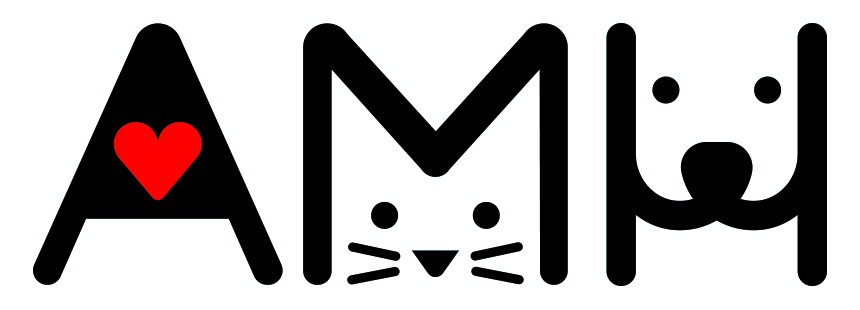Medical Services



Vaccines
At Animal Medical Hospital of Pasadena we offer affordable vaccine prices with examinations daily.
Come On In or Give Us a Call!
(626) 796-3019
Canine Vaccines:
*All pets must have a minimum of one Wellness/Physical exam by one of our veterinarians in the last year, prior to receiving vaccines.
Bordetella – This bacterium is transmitted with close to close contact with our pets. All pets that have interaction with other neighborhood friends should receive this to reduce a respiratory infection. First dose should be given after 2 months of age. Booster is every 6 months to 1 year pending on our patient’s lifestyle and frequency of exposure.
DA2PP – Distemper virus, adenovirus type 2, parainfluenza, parvovirus. First dose should be given as early as 2 months of age with additional doses needed to be repeated every 3-4 weeks until the puppy is 16-18 weeks old to provide an immune response. Annual boosters are completed thereafter.
Influenza (H3N8 and H3N2) – These respiratory viruses have seen an increase due to international lifestyles of our patients. Since Fall 2021, Los Angeles Public Health has advised that this be given as a core vaccine to our canine friends to reduce respiratory infection and complications of pneumonia. First dose can be given as early as 2 months of age and the second dose is given 3-4 weeks later. Booster is every year after that.
Leptospirosis – This bacterium is found in areas that infected wildlife frequent. It is passed through the urine and can survive in the environment for weeks to months. This can be the lakes, rivers, or even your backyard. Leptospira can also be transmitted to people and we strongly recommend that you protect your pet and yourself from this parasite. Since Fall 2021, Los Angeles Public Health has advised that this be given as a core vaccine to our canine partners. One initial dose is given after 3 months of age and the second dose is given 2-4 weeks later. Booster is every year after that.
Rabies –This virus is still found here in Pasadena and prevention is key. All canine pets are required to have this vaccine with the first dose given as early as 12 weeks by California State law. The next dose should be given 1 year later and then every 3 years.
Rattlesnake Vaccine – One initial dose is given after 4 months of age. The second and third dose (depending on the weight of the pet) is given 1 month apart. Booster is every 6 months to one year after that (depending on where you live). – although this does not prevent the deadly effect of a snake bite, studies have shown it to reduce the severity of the reaction allowing a more treatable outcome. It is recommended if you live in or travel to areas where rattlesnakes are found.
Feline Vaccines
We offer safe feline vaccines available through PUREVAX non adjuvant therapy. PUREVAX vaccines deliver a robust, effective immune response without the need for adjuvants to reduce possible vaccine induced reactions.
FVRCP – Viral Rhinotracheitis, Calicivirus infection, Panleukopenia First dose should be given at 2 months of age with additional doses needed to be repeated every 3-4 weeks until the kitten is 16-18 weeks old to provide an immune response. Annual boosters are completed thereafter.
FELV – PUREVAX Feline Leukemia – First dose should be given at 3 months of age. The next dose should be given 3-4 weeks later. Booster at 1 year of age and annually thereafter depending in exposure risk. Not all cats need annual boosters after the age of 2 but it is highly recommended if your cat goes outside at all or is exposed to other cats. New cats should not be brought into a household without first checking them for feline leukemia.
Rabies PUREVAX – This virus is still found here in Pasadena and prevention is key as indoor pets are still susceptible. All feline friends should have their first dose given at 3-4 months of age. The next dose should be given 1 year later and then every year after.
Vaccines help pets live longer, healthier lives. Call us today to set up an appointment to discuss your pet’s vaccination needs. (626) 796-3019
Common Tests & Procedures
At Animal Medical Hospital of Pasadena we firmly believe in preventative action with our common tests and procedures. We provide high quality care at affordable prices so all your pets can be safe and healthy. Prevention keeps your cat or dog healthy and protected.
Heartworm Test – Since dogs commonly travel with their owners heartworm is now being found in California. We highly recommend testing your dog annually for this potentially deadly disease. Prevention is the best medicine.
Feline FELV/FIV Test – Feline leukemia and feline immunodeficiency virus are retroviruses that infect cats. FeLV can be transmitted from infected cats when the transfer of saliva or nasal secretions is involved. It may also be transferred from the mother cat to the kittens during birth. FIV is transmitted mainly through cat bites and scratches. It is always necessary to test any new cats before bringing them into the household, it is also often necessary to retest any sick or exposed cats.
Fecal Testing – Annual testing is recommended as many parasites are zoonotic (transferable to humans). Fecal tests will check for roundworm, whipworm, hookworm, tapeworm, giardiasis, and coccidia as the most frequent parasites.
Deworming – prices vary according to required medication pending the fecal analysis.
Anal Gland Expression – This procedure is necessary in some dogs. One of the most common signs your pet has full anal glands is excessive scooting along the ground. At times you may notice a strong unpleasant odor and more constant licking at their rectum.
Nail Trims – Overgrown nails can become a health hazard for your pet. Some nails may grow into their paw pads, get caught on bedding, or tear abnormally. Monthly grooming and care can help prevent these complications.
Dental
Bad breath in pets is often joked about, but it is not a laughing matter. Dental disease affects up to 80% of pets over the age of three, and just like humans, there can be serious consequences of poor dental health.
Dental care is vital to your pets health. If you are not proactive about dental care your pet can suffer from gum disease (gingivitis) which can seriously lead to heart disease, kidney disease, and liver failure. 8 out of 10 dogs as well as 7 out of 10 cats have been shown in recent studies to have gum disease by the early age of 3. With the dentistry program here at Animal Medical Hospital of Pasadena, most cases can be prevented and others can be cared for.
We treat pets for a variety of dental issues including periodontal disease, gingivitis, halitosis, and fracture teeth among others. Your pet’s dental health is important in their overall well being. We offer routine dental cleaning along with simple and complex tooth extractions.
Anesthesia is a minimal risk for pets just as it is for humans. We use the safest of anesthetics and we support that the low risk involved with the anesthetic procedure outweigh the risk to your pet’s health with dental disease. Our hospital is modernized with state-of-the-art equipment and well trained, caring team members. We take a proactive approach to any anesthetic procedure including pre-anesthetic testing, inhalant gas, electronic monitoring and intravenous fluids. Pets are monitored throughout the dental procedure and as they recover.
Dental disease can have major effects on your pet’s organs, including the heart, liver and kidneys. The most obvious signs to look for are:
- Loose teeth, Tooth loss
- Excessive drooling
- Brown or Discolored teeth
- Loss of appetite, pain when eating
- Prolonged chronic pain
- Infections and severe irritation
- Lowered resistance to their health issues
- Heart disease
- Liver disease
- Kidney disease
- Lethargy or loss of normally playful nature
- Failing to groom (cats)
An inflamed gum line is an early symptom of periodontal disease. Other symptoms include red, swollen and sometimes tender gums and an increase of plaque. An extensive plaque formation will cause foul odor.
A pre-operative exam is necessary within 1-2 month of the procedure. Our comprehensive cleanings start at: canine $299 and feline $229.
This does not include the price of dental x-rays and extractions should any be needed; extractions usually only happen under extreme conditions. Should our highly skilled professional team of doctors and RVTs decide your cat or dog may need either extractions a treatment plan will be prepared and you will be contacted for consultation and discussion of benefits, potential procedural risks, prognosis and cost influences of each treatment option during the procedure.
We offer the following dental services at Animal Medical Hospital of Pasadena:
Oral Disease: Diagnosis and treatment of oral manifestations of systemic disease; stomatitis, autoimmune oral disease and feline resorptive lesions.
Endodontics: Abscesses
Orthodontics: Genetic counseling and evaluation of bite disorders.
Periodontics: Treatment of gingivitis and periodontal disease, root planning, gingival overgrowth.
Oral Surgery: Extraction of compromised teeth, palatal defects, tongue and salivary gland disorders, surgical treatment of oral tumors and consultation regarding jaw fracture repair.
Lab Work
Lab Work – A very important tool for both sick and well pets
At AMH we work with the nationally certified laboratory, IDEXX. We also offer our own in-house laboratory which utilizes the latest equipment.
Lab work is critical in providing us with information about your pet’s health. Whether young or old if your pet undergoes a comprehensive blood panel, while healthy, this will not only alert us to potential health problems but will give us a baseline to look at if a problem occurs in the future. Your pet’s doctor will choose whether it is best to send out lab work or perform it in-house. In-house laboratory testing is often used in situations where getting the information quickly is important. It is almost always used for pre-anesthetic evaluations, which help detect any potential problems during anesthesia. We work with outside laboratories when more comprehensive or specialized veterinary testing is necessary or when time is not as much of a concern.
We strive to offer you the best diagnostic testing possible for your pets. Listed below are a sample of the laboratory diagnostics offered at AMH:
- Bacterial cultures
- Blood Chemistries
- Complete blood counts
- Fecal examinations
- Fungal cultures
- Heartworm testing
- Histopathology
- Pancreatitis testing
- Tick panels
- Thyroid testing
- Urine tests
- Vaccine titers
- Virus Testing (Parvovirus, Feline Leukemia Virus, and Feline Immunodeficiency Virus)
Wellness testing can help detect many conditions early before they become serious illnesses. Be sure to ask our veterinarians about which tests your pet may need during your pet’s next wellness exam.
Digital X-rays
Radiography (Digital X-Rays) is a valuable diagnostic tool in veterinary medicine. As we continually strive to offer the highest quality medicine and diagnostic testing, we are pleased to offer digital radiology services as a means of providing excellent care to our patients.
It is amazing what can be found — without surgery — inside the body of a pet, when the right imaging equipment is used and the right person is looking.
Radiography is painless, safe, and completely non-invasive, and it uses only very low doses of radiation. Because the level of radiation exposure needed to perform radiography is very low, even pregnant females and very young pets can undergo this testing. Radiographs can be used to evaluate bones as well as the size, shape, and position of many of the body’s organs. The size of organs is important because some medical conditions—such as kidney, heart, or liver disease—can alter the size of these organs. The shape and position of organs can be altered or distorted by certain medical conditions, including intestinal blockage or cancer. Tumors, depending on their size and location, can also sometimes be detected using radiography. Radiography can also be used to diagnose bladder stones, broken bones, chronic arthritis, certain spinal cord diseases, and a variety of other conditions.
Digital technology now produces X-ray images of any part of the body that can be displayed quickly on a computer screen, allowing us to zoom in on a particular area to enhance detail. We can modify and enhance the image so that very fine details can be seen. These high-quality images are made with far lower levels of radiation than what is needed for film, and, because it doesn’t use old-style photographic film the digital images may be stored and retrieved easily. Like a digital photo, a digital radiograph can be manipulated after it is taken allowing our team to view the image and see things in ways that weren’t possible with conventional film X-ray.
The imaging procedure is non-invasive and completely painless and can be performed on calm and cooperative pets without sedation. We may administer a light sedative or general anesthesia in cases where a dog or cat has trouble becoming fully relaxed naturally.
Digital radiographs are simple to transmit electronically if the assistance of a specialist or another set of eyes is needed.
Cold Laser Therapy
Cold laser therapy, is a low-level laser therapy which is the use of light energy to stimulate tissue repair and provide pain management.
Laser therapy sessions last from a few minutes in length (if focusing on one specific area) to up to thirty minutes in length. The treatment is safe, non-invasive and not painful. Pets often relax and enjoy their treatments. Laser therapy is often recommended in conjunction with other modalities (such as oral pain medication, massage or therapeutic exercise) to provide the best outcome.
Ultrasound
Ultrasound is completely safe and non-invasive, it allows our veterinarians to visualize and examine many body organs and systems, including the liver, gall bladder, spleen, kidney, pancreas and urinary bladder. Ultrasound is painless and does not require anesthesia or even sedation in most cases. Sedation is rarely necessary unless an ultrasound-guided biopsy is being performed.
Ultrasound is like ordinary sound except it has a frequency higher than humans can hear. The sound waves are reflected off of internal structures. The returning echoes are then received by the transducer and converted by an electronic instrument into an image on a monitor. Extensive training is required in order to correctly interpret these images.
The ultrasound waves move out from the wand and either become absorbed into organs, pass through them, or are reflected (echo) back. Depending on how many sound waves are absorbed or reflected, an image of the internal organs is formed that can be seen on a monitor.
This test is typically done after blood tests, x-rays, or a physical examination indicates a possible problem. As with people, it can be used during pregnancies. There is a specific ultrasound called an echocardiogram that is used to visualize the heart and blood vessels as well as the valves of the heart.
Ultrasound can “see” some things that can’t be visualized on radiographs. For example, if the abdomen is filled with fluid, the organs can’t be distinguished on traditional x-rays because fluid and tissue have the same density. However, they appear quite different from each other on an ultrasound image, so we can see through the fluid. It is also useful, for the same reason, for seeing inside an organ such as the heart or liver.
If our veterinarian has referred your pet for an ultrasound, please be aware of the following:
To obtain the best quality images, the fur may be shaved from the body part that needs to be imaged.
A board certified radiologist, internal medicine specialist, or cardiologist may complete the study pending on the body cavity that is being studied.
Sedation may be needed if samples are collected using a biopsy technique
Please fast your pet overnight for the visit. No food after dinner time, but offering water is fine and will not interfere with the study.
Dermatology & Skin Care
Scratching, itching, hot spots…… Your pet’s itchy skin can drive both your pet – and you – crazy.
If the cause of that itchy skin is left untreated, quite serious health problems for your pet may develop.
Diseases of the skin can be painful for your pet and diagnosing the cause can be challenging. Disorders of the skin and ears are among the most common reasons pets visit their veterinarians. Dermatology problems such as these can leave your cat or dog feeling uncomfortable and affect the quality of your pet’s life. The good news is that these problems can be treated and controlled.
Skin disorders can be caused by parasitic infestation, allergic reaction, or non-infectious disease and must begin by ruling out one possibility at a time. Our veterinarians believe in trying the simple solutions first before ordering the more expensive diagnostic tests and treatments. The unfortunate aspect with some of the dermatology diseases is that in some cases the condition can only be managed and not cured.
There are many dermatological conditions we see in pets. Among these are:
- Flea allergy
- Food allergy
- Environmental allergy
- Otitis (ear infection)
- Staphlococcus (bacterial) infection
- Ectoparasites
- Ringworm (fungal) infection
Contact us before a small problem becomes a large one!
Make your appointment today! (626) 796-3019
Ophthalmology
Dogs and cats rely on their keen senses to explore and enjoy their world; it’s important that they have optimal function of all their senses, including vision. Pets’ eyes are susceptible to problems just as humans are and, in fact, can suffer from the same diseases we do.
Many of our pets are curious creatures, they may poke their heads where they shouldn’t, which sometimes results in an eye injury.
Age, injury, disease, and genetics all add up to what may cause your pets to have eye problems. Some species are more prone to various eye problems than others. Don’t hesitate to bring your furry family into Animal Medical Hospital if you notice something wrong. Early Detection and treatment is very important.
Give us a call today! (626) 796-3019
Senior Pets
As your dog or cat ages many questions can arise regarding his or her health. The good news is that senior pets are now living longer. Nothing contributes more to the long life of your pet than regular visits to their veterinarian. The reason regular visits are so important for your furry family members is that dogs and cats age much faster than we do. Health problems can develop rapidly, especially in older animals. We want to catch those small health problems before they become major medical conditions. We strongly believe the best and most cost effective care for pets, at any age, is preventative care.
How Often Should Your Senior Pets Have An Examination?
Because our four legged family members can’t always tell us they don’t feel well many problems go undetected. For the best care your senior pet should be examined every 6 months, which is comparable to a time span of 2 to 3 years in people.
We consider our pets senior citizens after around 8 years of age, in some large breeds even as early as 5 years of age.
The Importance of Routine Testing
Along with a detailed medical history and a thorough physical examination our veterinarians may advise to order diagnostic testing. Even in younger or apparently healthy pets, this testing is very important in order to establish baseline laboratory data. Our senior evaluation includes sensitive laboratory tests that can detect the onset of diseases and conditions early, when treatment and prevention are most effective. Annual parasite testing (heart worm and fecal) with bloodwork is advised.
Your Overall Pet’s Health Assessment
Using the information gained from the complete physical examination that our veterinarians complete and diagnostic testing will provide you with an assessment of your pet’s overall health. We will also look for early signs of arthritis, which is common in older pets, heart disease and dental disease, which can lead to serious medical conditions. The care and well being of your pets is our top concern, as your pet is part of our family.
Please call us today to book your appointment! (626) 796-3019
